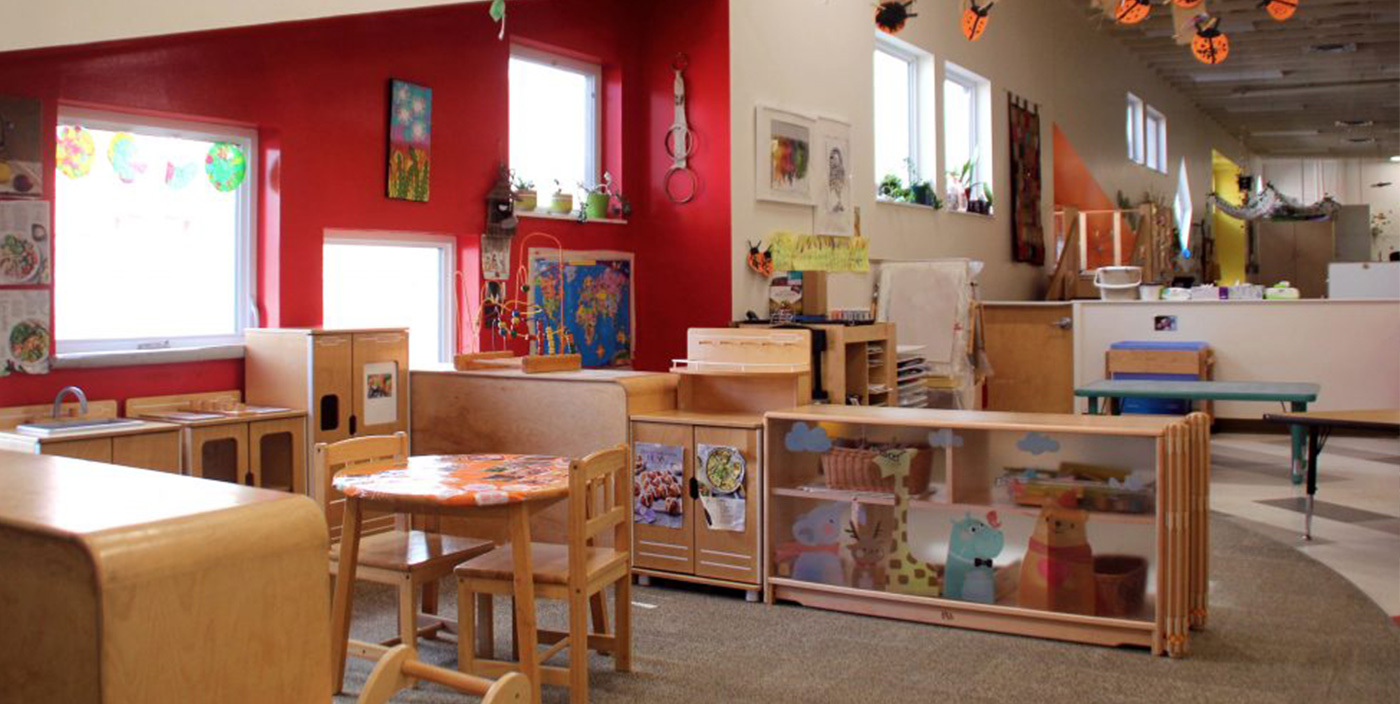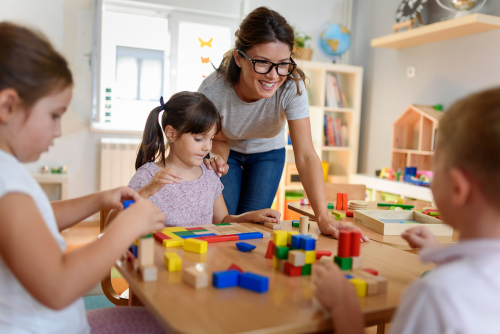Comprehending the Relevance of Childcare for Your Young child's Social Development and Discovering Experiences Via Engaging Activities
The importance of day care in shaping a young child's social advancement and discovering can not be overemphasized, as it supplies a structured environment filled up with appealing activities that are pivotal for very early growth. As we explore the complex advantages of daycare, one have to take into consideration just how these fundamental experiences influence a youngster's future social communications and general growth.

Benefits of Social Communication
Social interaction plays an important duty in the developing trajectory of young children, working as a structure for necessary social abilities. Involving with peers permits kids to practice communication, learn to express their feelings, and establish compassion. With shared play and collaboration, they begin to comprehend social norms, such as taking turns and sharing, which are essential components of effective interpersonal partnerships.
In addition, social communications add to cognitive development. As toddlers communicate with their peers, they enhance their language skills, increase their vocabulary, and boost their capability to express ideas and sensations. This exchange of ideas cultivates vital thinking, as youngsters find out to discuss, address problems, and browse disputes.
In addition, social communication advertises psychological guideline. Exposure to different social circumstances helps young children acknowledge and manage their feelings, eventually causing better strength and adaptability. The capacity to form accessories and relationships likewise improves their sense of belonging and self-confidence, which are essential for general health.
Relevance of Involving Activities
Engaging activities are essential for cultivating a revitalizing environment that boosts kids' social advancement. These activities not just captivate young youngsters's interest however likewise advertise energetic engagement, enabling them to explore their environments artistically. Through play-based knowing, kids establish crucial abilities such as problem-solving, participation, and empathy, all of which are important for developing healthy and balanced partnerships with peers.
Joining engaging tasks, such as group video games, art tasks, and interactive storytelling, encourages kids to express their concepts and sensations. This expression is important for emotional knowledge and aids them understand the point of views of others. Additionally, when young children participate in these tasks together, they discover to negotiate duties, share resources, and collaborate, which are fundamental elements of social communication.
Additionally, a well-structured setting that consists of stimulating and diverse tasks aids in keeping kids motivated and focused. This motivation fosters a love for learning and expedition, laying the structure for future educational experiences. Eventually, involving tasks in childcare setups are essential in forming social abilities, preparing young children for effective communications past the class, and nurturing their overall advancement during these formative years.
Developing Communication Abilities
Reliable interaction abilities are essential for young children as they browse their very early social communications. In a childcare setup, youngsters are exposed to varied social situations that encourage verbal and non-verbal interaction. Engaging in conversations with caregivers more information and peers fosters language growth, allowing young children to share their feelings, requirements, and thoughts more effectively.

Moreover, daycare settings offer opportunities for young children to simulate and observe communication styles of their grownups and peers. This observational knowing is important as kids select up on social hints, tone, and body movement, which are essential elements of reliable communication.
Fostering Self-reliance and Self-confidence
As kids refine their interaction abilities, they at the same time begin to discover their independence and construct confidence in social setups (daycare for infants near me). Childcare provides a structured environment where children can take part in various tasks that motivate autonomy. From selecting their own tasks to getting involved in group jobs, these experiences empower kids to make choices and express themselves
In a childcare setup, youngsters are usually provided with possibilities to solve troubles independently, whether it's identifying exactly how to share toys or solving disputes with peers. This cultivates crucial reasoning and promotes self-sufficiency. In addition, caretakers sustain this advancement by providing positive reinforcement and guidance, assisting youngsters to browse social communications with confidence.

Team tasks, such as participating games or joint art projects, promote team effort and educate young children the importance of collaborating. Via these communications, children discover to connect their feelings and thoughts, additionally boosting their self-worth and social abilities.
Ultimately, cultivating freedom and confidence in daycare not only prepares toddlers for future social settings but likewise lays the groundwork for a resistant attitude, outfitting them with necessary life abilities as they continue to grow and learn.
Structure Lifelong Discovering Foundations
A strong foundation for lifelong knowing is crucial for young children, as their very early experiences form their attitudes towards education and learning and curiosity. Daycare environments play an essential duty in this developing stage by providing structured chances for exploration and interaction. Engaging activities, such as team play, arts and crafts, and interactive storytelling, this article boost cognitive growth while urging social communication.
With these experiences, kids discover crucial abilities such as analytical, interaction, and cooperation. They are introduced to the principle of learning as a pleasurable, collective process instead of a chore, which cultivates a favorable mindset towards education and learning. Additionally, direct exposure to diverse perspectives and peer communications in day care setups improves emotional intelligence, advertising empathy and strength.
Caregivers and teachers also add significantly to building this foundation by modeling curiosity and excitement for learning. By motivating questions and facilitating discussions, they create a setting where kids really feel safe to reveal themselves and explore new concepts. Ultimately, the mix of helpful connections and interesting tasks in childcare settings prepares for a long-lasting love of knowing, equipping young children with the abilities and state of mind essential for future academic and individual success.
Verdict

The relevance of day care in forming a young child's social growth and learning can not be overstated, as it offers a structured setting loaded with interesting tasks that are crucial for early development.Social communication plays an essential function in the developmental trajectory of toddlers, serving as a structure for essential social abilities. When young children engage in these activities together, they discover to discuss functions, share sources, and work together, which are basic facets of social communication.
Eventually, engaging activities in day care settings are crucial in forming social skills, preparing kids for effective interactions beyond special info the classroom, and nurturing their overall development throughout these developmental years.
Eventually, the benefits of engaging activities in childcare setups play a considerable role in preparing kids for future social communications and challenges. toddler daycare near me.
Comments on “Professional Reviews of Infant Daycare Near Me: Locating the Right Area for Your Baby”